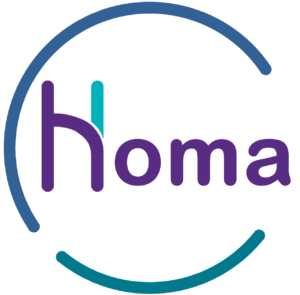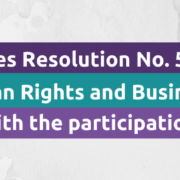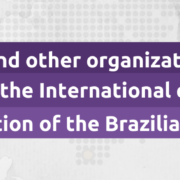German Due Diligence Law
Due diligence: a normative reality in the Human Rights and Business Agenda
Text by: Ana Laura Figueiredo
In this new blog series we will address the due diligence institute, incorporated by the UN Guiding Principles, and some regulations, approved or under discussion, which have become a reference for the study of the subject and seek to transform their application. In this way, we will analyze the French Vigilance Law (Loi de vigilance), the European Union (Directive on Corporate Sustainability Due Diligence ), the German Due Diligence Law (Act on Corporate Due Diligence Obligations in Supply Chains) and, by finally, other normative instruments that do not deal exclusively with due diligence, such as PL 572/2022, a topic in another series in which we explain the National Agenda and its construction process.
In this post we will analyze the German Due Diligence (Act on Corporate Due Diligence Obligations in Supply Chains) which is directly linked to the new Homa project, the development of the research “Repercussions of the German Due Diligence Law in Brazil” , which is funded by the German Embassy.
Contextualization
In 2016, Germany established its National Action Plan to internalize the guiding principles of John Ruggie, voluntary standards that regulate the topic of Business and Human Rights. However, after a survey carried out by the government, which found that only 13 to 18% of companies followed the provisions, it was found the need to adopt binding regulations on the subject. In this way, the German Due Diligence Law was structured due to the influence of proposals and laws in force on the subject on the European continent, such as the French Vigilance Law, already analyzed in another post. It should be mentioned that the promotion of the law took place largely thanks to the articulations of state sectors and the great mobilization of civil society that became known as the “September Initiative”.
Thus, the German legislation was approved by the German parliament in June 2021 and will come into effect from January 2023, establishing an expansion of the scope of protection of human rights and the environment.
Application and scope of the Law
With regard to its application, the text covers companies that have headquarters or branches in Germany, which includes those registered abroad and also the branches of German companies installed in other countries, and will reach its supply chain, that is, direct or indirect supply companies. Regarding the number of employees, by the end of 2023 it will also cover companies with at least 3000 workers, and at least 1000 workers from 2024, which initially points to the framework of 600 German companies.
It should be mentioned that the instrument is broad in terms of the scope of human rights and the environment covered. In terms of human rights, child labor, forced labor, slavery and similar work, disrespect for work safety standards, disrespect for the right to free association, discrimination against employees and workers, denial of decent remuneration, violations of human rights linked to environmental damage, illegal displacement of people and illegal appropriation of land, forests, and water and, finally, the use of violence by security forces. With regard to the environment, the scope is restricted and what exists is a concern about soil and water pollution by activities that use mercury.
Due Diligence Obligations
Of the listed obligations, companies shall establish a risk management system; designate someone responsible in the company; review risks regularly; issue a policy statement; establish preventive measures in its own business area and with respect to direct suppliers; take corrective measures; establish a complaints procedure; implement due diligence obligations in relation to indirect supplier risks; and, publish documentation and reports.
The law also establishes the creation or adaptation of a complaint mechanism that respects confidentiality, the production of an annual due diligence report that must be made available free of charge and that is easily accessible, in addition to providing for sanctioning measures in case of non-compliance, such as the prohibition of participation public procurement contracts for up to 3 years and fines. On the other hand, the law does not provide for any type of civil liability, with judicialization in other spheres.
Points on applicability
Some issues in the law are treated with some trepidation by civil society and by those awaiting the start of its implementation, as already mentioned, the law is not capable of generating civil liability and the sanctions are limited to the administrative ones, such as fines and exclusion from public contracts.
Another issue is linked to the main points for reaching the supply chain, which are the area of operation, direct suppliers and indirect suppliers. The problem lies in making indirect suppliers liable through proof of substantial knowledge by the headquarters, which can generate certain insecurity due to the lack of precision in the term.
Finally, it is important to consider how the BAFA, the German Federal Department of Economics and Export Control, will act, since the law designated it as responsible for auditing the reports produced by companies, even though it is not specific to human rights. In addition to this function, the body may carry out monitoring ex officio or upon provocation, and, in these cases, companies will be required to provide requested information and documents.












Leave a Reply
Want to join the discussion?Feel free to contribute!